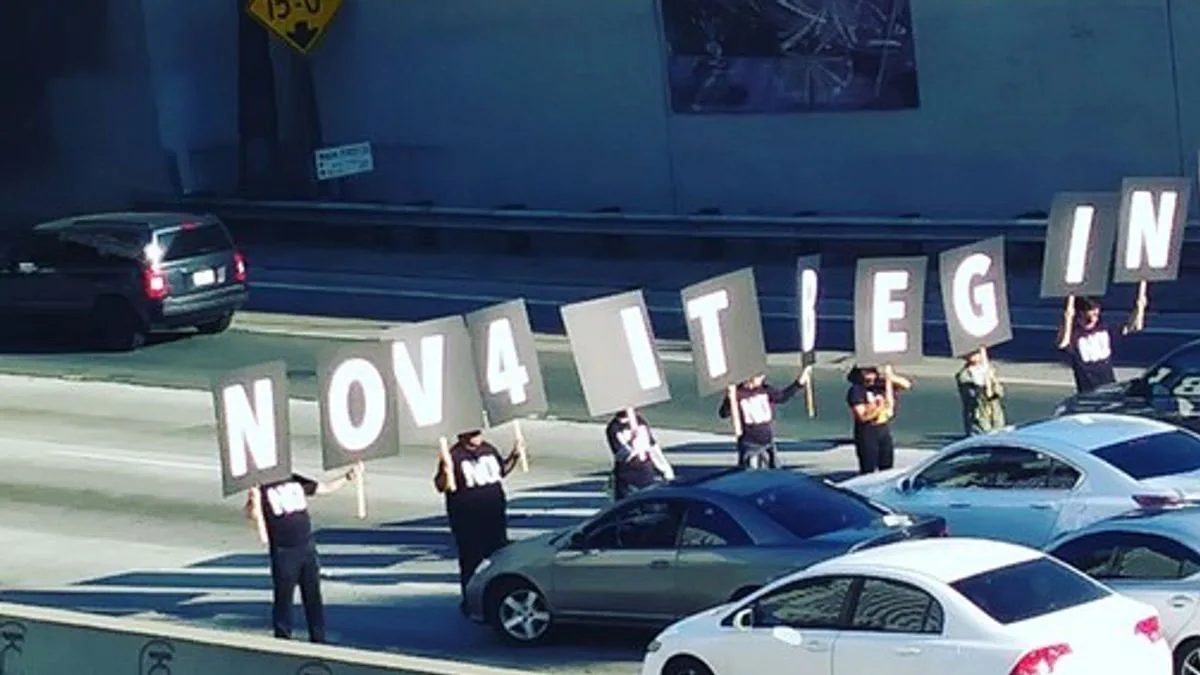In the United States, the question of whether it is illegal to block traffic is addressed through various traffic laws and ordinances that are primarily enforced at the state and local levels. This article explores the legal implications of obstructing traffic, including the circumstances under which such actions may lead to criminal charges or other penalties.
Understanding Traffic Obstruction Laws
Blocking traffic involves deliberately or negligently obstructing the normal flow of traffic on public roads. This can include actions such as stopping a vehicle in an active traffic lane, organizing a protest without proper permits, or creating unsafe conditions that prevent traffic from moving freely.
Legal Provisions Against Blocking Traffic
State Vehicle and Traffic Laws: Each state has its own set of laws that govern road use, including specific statutes that prohibit blocking traffic. For instance, it is typically illegal to stop a car on a highway except in cases of emergency or when directed by traffic signs or law enforcement.
Examples from Key States
- California: In California, the Vehicle Code Section 22500 prohibits stopping, parking, or leaving a vehicle standing in a manner that obstructs traffic. This includes blocking driveways, sidewalks, and intersections.
- New York: Under New York’s Vehicle and Traffic Law, it is illegal to block an intersection or to double-park, which can hinder the flow of traffic.
- Texas: The Texas Transportation Code stipulates that a person may not stop, stand, or park a vehicle in an intersection, on a crosswalk, or in any place where official signs prohibit stopping.
- Florida: Florida Statutes require that no person shall stop a vehicle so as to obstruct or impede a public street, highway, road, or any other place where vehicles run unless necessary to avoid conflict with other traffic or in compliance with the directions of a police officer or traffic control device.
Local Ordinances: Many cities and municipalities have additional ordinances that address traffic flow and public safety, including specific rules against blocking intersections, crosswalks, and other crucial traffic areas.
Exceptions and Permitted Circumstances
There are exceptions to these rules, particularly regarding:
- Law Enforcement and Emergency Situations: Police, fire services, and medical emergency vehicles may block traffic as part of their duties.
- Legally Sanctioned Events: Parades, marches, or public demonstrations may legally block traffic if they have the necessary permits from local authorities.
Penalties for Illegally Blocking Traffic
The consequences for unlawfully obstructing traffic can vary significantly based on the jurisdiction and the specific circumstances of the incident:
- Fines and Citations: Most common penalties include fines or traffic citations.
- Arrests: In more severe cases, especially where the blockage leads to significant risks or damages, individuals may be arrested.
- Civil Liability: Individuals who block traffic may also face civil liability if their actions cause accidents or damage.
Recent Legal Challenges and Debates
Recent years have seen increased attention on the legality of blocking traffic during protests. Courts have often had to balance the right to protest with public safety and the rights of other road users. These cases continue to shape the legal landscape regarding what constitutes lawful and unlawful road blockages.
Legal Advice
Individuals planning an event that may involve blocking traffic should seek legal advice to ensure compliance with local laws and to secure the necessary permits. Similarly, anyone charged with illegally blocking traffic should consult a legal professional to understand their rights and options.
Conclusion
In summary, while there are circumstances under which roadways may be lawfully blocked, generally, intentionally or negligently obstructing traffic is illegal and subject to penalties. Understanding and complying with local traffic laws is essential for all road users to maintain safety and order on public roads.
References
- National Highway Traffic Safety Administration (NHTSA) Guidelines, https://www.nhtsa.gov
- American Bar Association insights on traffic laws, https://www.americanbar.org









Leave a Reply